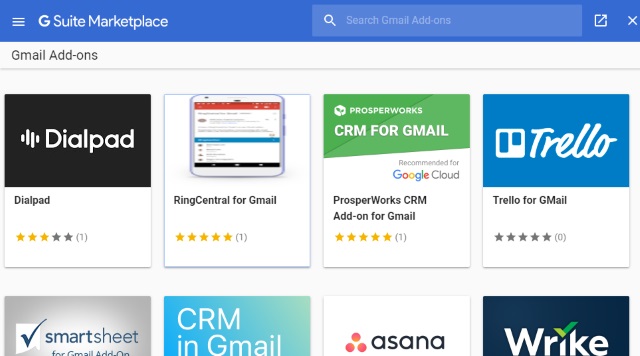
7 big mistakes to avoid when shopping for an SMB broadband ISP
Let me clear the air right off the bat: most SMB owners are making more than one major mistake in their hunt for an Internet Service Provider (ISP). The big players in the ISP space love preying on the SMB market because it's so easy to oversell bandwidth, obfuscate the facts, and generally make the process a "smoke and mirrors" game which serves to their advantage.
I'll be the first to admit that broadband shopping is a tricky affair. Service areas for ISPs and their various offerings are as arbitrarily drawn as gerrymandered political districts in the US. Their sales reps are generally trained on how to guilt trip SMB owners into too much bandwidth by relying on keywords like 'productivity' and 'downtime'. And most decision makers have no idea how to shop for broadband based on actual usage needs and instead let ISP reps make this judgement call for them. All of these factors contribute to ISPs having an unfair advantage in negotiations, upselling services and pipelines that merely line sales rep quotas.

More than half of IT pros believe their organization was breached at least once in 2017
A new study of 165 IT and security professionals at medium-sized companies across the US reveals that 53 percent believe their organization was breached one or more times in 2017.
The report from security-as-a-service company Cygilant shows a lack of confidence in respondents' ability to protect customer data, with only 16.6 percent very confident that they can successfully protect customer data.

Google launches Gmail Add-ons and brings a range of business tools to the inbox
Integration is the name of the game these days, and Google is taking steps to ensure that its own services offer integration with the tools and services people need to get their work done. With this in mind, the company today launches Gmail Add-ons after a beta testing period as a developer preview earlier in the year.
Gmail Add-ons are extensions that bring a number of big-name services -- such as Trello, Wrike and Asana -- to your inbox. While there's a definite business and enterprise bias, it's something that is available to everyone, starting right now.

Google makes it easier for businesses to take online bookings
Businesses in the US now have a new way to sign up with one of Google's booking partners and to add a booking button to their search listing.
Anyone in the US with a Google My Business account can benefit from the addition of a booking button that enables people to book a reservation with a simple click. It's a continuation of the idea started with Reserve with Google, and the search giant is making it easy for businesses to track their online booking through their accounts.

Dropbox Professional is a new business service for independent workers
Dropbox is one of my favorite cloud storage services for many reasons. As someone who uses Windows, Desktop Linux, iOS, and macOS regularly, I need a solution that works seamlessly between operating systems. Dropbox is the only major offering that meets that need. I appreciate the love and respect that the company shows to the Desktop Linux community in particular. This is something Google has famously failed to do despite maintaining two Linux distros with Chrome OS and Android, but I digress.
Today, "Dropbox Professional" launches, and no it is not a rebrand of Dropbox Business. Actually, this new "Professional" service is aimed at individual business workers. If you are in business for yourself, and not necessarily a part of a team, and still want access to business-level tools, this is for you. It comes with 1TB of storage and access to a really cool new feature called "Showcase."

Many UK SMBs don't invest in security solutions
A third of UK small businesses are risking their online safety by operating at or below the "security poverty line," according to new research from Duo Security.
The cybersecurity company partnered with YouGov to survey 1,0009 senior decision makers across the UK to determine how much they are spending on cybersecurity and whether government initiatives such as Cyber Essentials and Cyber Risk Aware have been effective at protecting SMBs from cyber threats.

66 percent of SMBs could go out of business following a breach
Today's threat landscape is becoming increasingly more complex and sophisticated, And all sizes of business are at risk.
VIPRE Security has released the results of a survey of 250 SMB IT managers which shows that 66 percent say they would either go out of business or shut down for a day or more if their systems and/or data were compromised.

IT maturity improves in small and medium sized businesses
A new study by IT management specialist Kaseya looks at IT department practices and for the second year in a row finds a growing level of maturity in SMBs and mid-market companies.
Kaseya uses an IT Management Maturity Model that divides companies into five levels, from the lowest 'Reactive' through 'Efficient', 'Proactive' and 'Aligned' up to the highest 'Strategic'.

Ransomware attacks affect five percent of SMBs
Five percent of all small and medium-sized companies in the entire world were victims of a ransomware attack in 2016 alone, with the money paid out to reclaim data reaching new highs, new research has revealed.
Datto's new State of the Channel Ransomware Report found that an estimated $301 million (£222 million) was paid to ransomware hackers from 2016-2017.

Retail SMBs are vulnerable to security hacks
Small retailers face a host of challenges on a daily basis -- from staying digitally relevant while maintaining a "human touch," to retaining a loyal customer base as they grow and expand. Unfortunately, information security often slips under the radar. This is troubling as the 2016 Trustwave Global Security Report found the retail industry accounted for the highest number of data breach incidents globally. What’s more, Shred-it’s 2017 Security Tracker shows that one-third of US small businesses (SMBs) that suffer a data breach, need up to three years to recover.
The fact is, data breaches are an unavoidable reality for all SMBs, whether it is the result of malicious theft or insider error. Therefore, it is critical for small businesses -- who rely on word-of-mouth and reputation -- to invest in data protection. Neglecting to do so could result in multiple years of lost business.

UK SMBs spend up to £3 million a year on technology upgrades
UK SMBs are shelling out huge amounts of money on upgrading their technology every year, potentially hindering investment elsewhere, new figures have claimed.
A report from American Express and the Center for Economics and Business Research (CEBR) found that on average, SMBs spend roughly £200,000 each year on new technologies.

Avast launches new security solution for SMBs and MSPs
Following Avast's acquisition of rival firm AVG last year the two companies' products have largely continued side by side.
Today sees the launch of one of the first fruits of the union in the form of Avast Business, combining technology from AVG and Avast, and aimed at smaller businesses and managed service providers.

WhatsApp tests free Business app, but will charge larger enterprises
Not content with amassing over a billion users, WhatsApp is branching out into new territory, testing out a new free WhatsApp Business app. The app will be free for small to medium-sized companies, but larger enterprises will be charged.
The announcement comes just days after it emerged that WhatsApp was introducing verified accounts for some business users. The new app is part of WhatsApp's drive to monetize the platform, and it will provide a line of communication between businesses and customers.

71 percent of SMBs are not prepared for cyber security risks
Small and medium sized businesses increasingly feel that they're vulnerable to cyber threats but most aren't prepared to meet them.
A new survey from endpoint security specialist Webroot finds that 96 percent of businesses with 100 to 499 employees in the US, UK and Australia believe their organizations will be susceptible to external cybersecurity threats in 2017. But although they recognize the threats, 71 percent admit to not being ready to address them.

7 Tips for setting up a server room in your startup or small business
Despite the advent of cloud-based services, there are still some situations where on-premise hardware is the preferred route. Whether it’s a desire for direct control over security or the option to get hands-on with the hardware, some small businesses prefer to host their servers in-house.
Servers offer redundancy, make your environment more compliant to data recovery plans and are more secure than a peer-to-peer network. If your startup or small business is ready for its first server, here are some tips to get started.
